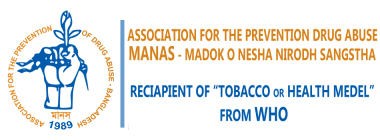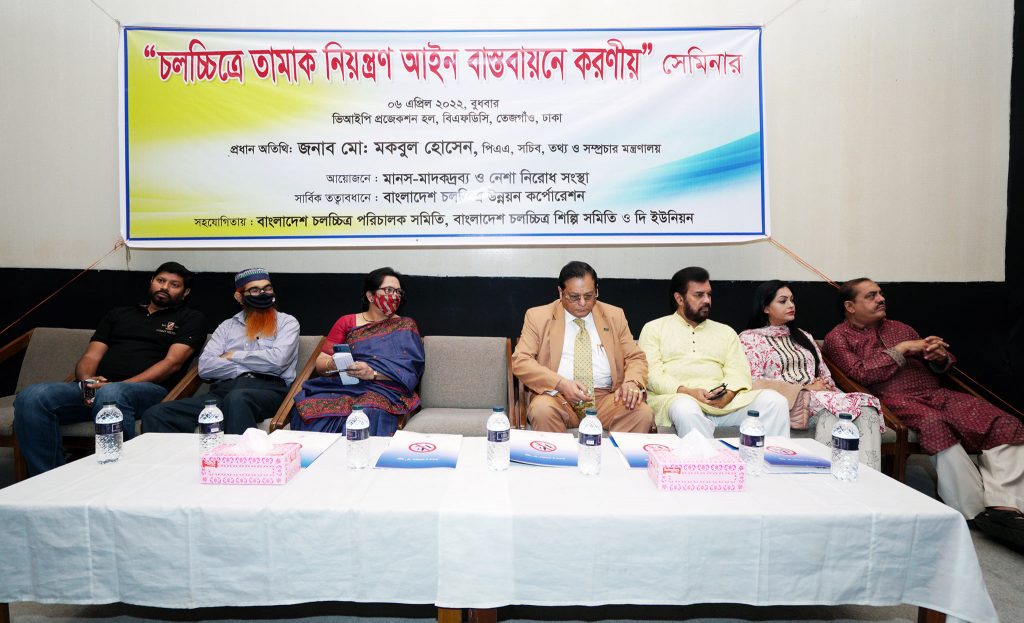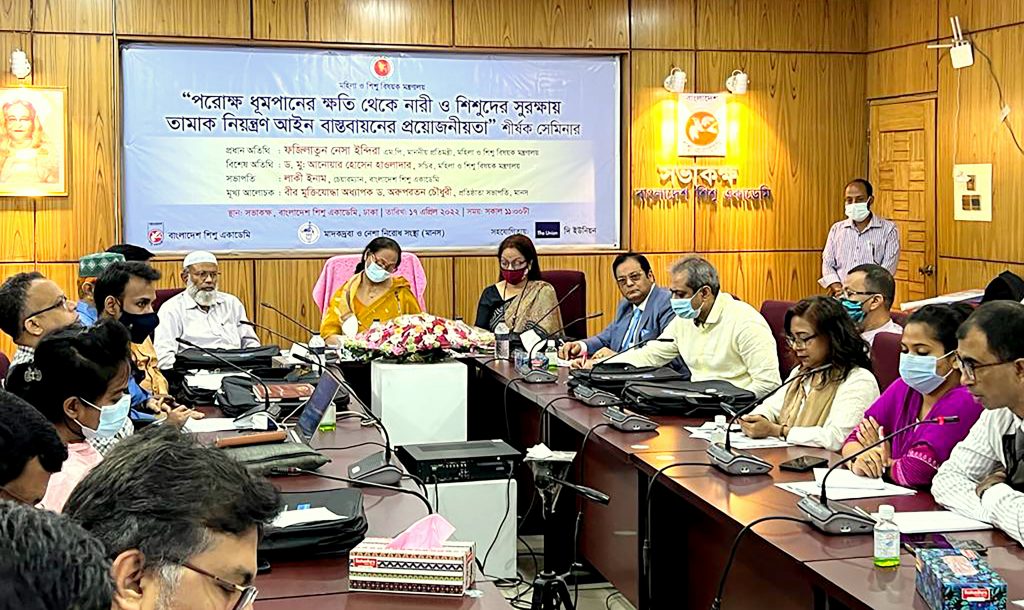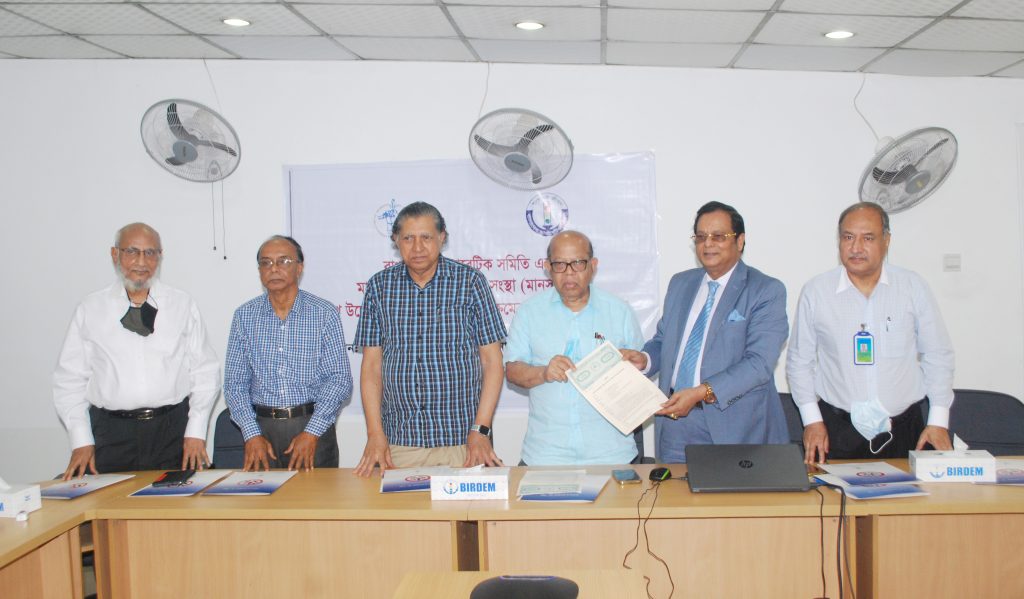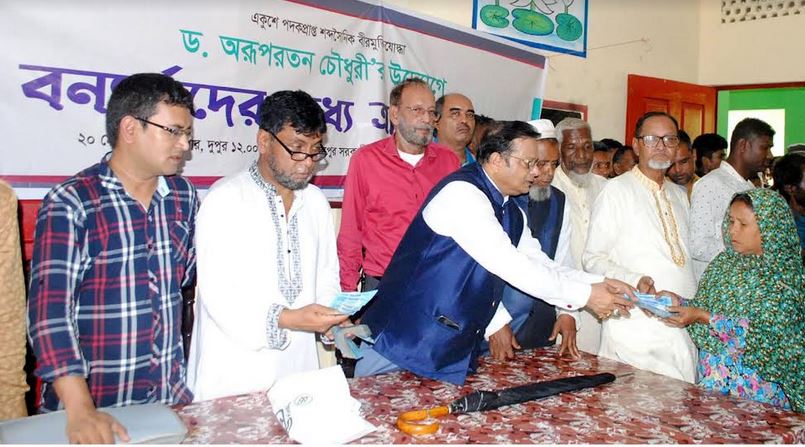Emphasis on Prevention to Eradicate Drugs and Tobacco
-Speakers at the Discussion Meeting Organized by MANAS
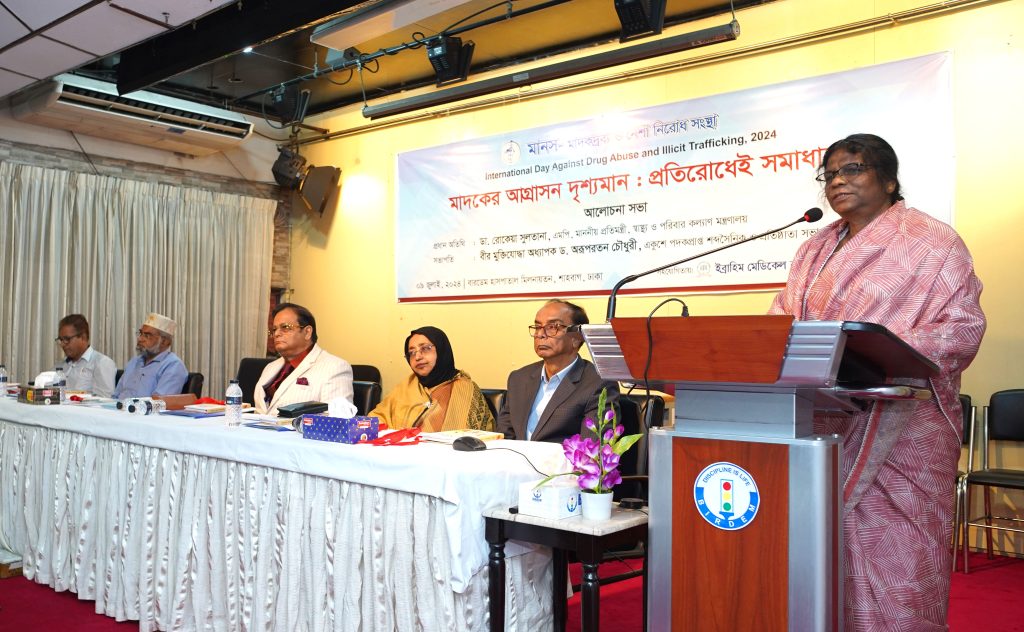
The youth of society are being devastated by the scourge of drugs. There is no substitute for drug eradication to build healthy human resources. Prevention programs must be strengthened to keep teenagers away from drug and tobacco addiction. These critical issues were highlighted on July 9, 2024, at a program organized by Madok Drabo O Nesha Nirodh Sangstha (MANAS), with support from Ibrahim Medical College and the Dental Unit at Birdem Hospital Auditorium, to mark the International Day Against Drug Abuse and Illicit Trafficking.
State Minister of Health and Family Welfare, Dr. Rokeya Sultana, MP, served as the chief guest. She stressed that no parent wants their child to go astray and highlighted the pervasive negative impact of drug addiction on families and society. Noting the rise in addiction among the educated class, she called for intensified anti-drug campaigns in schools, colleges, and universities, and emphasized the need for quality rehabilitation centers to prevent relapse. The Ministry of Health and Family Welfare pledged support for these efforts.
Special guests included Khondoker Mostafizur Rahman, NDC, Director General of the Department of Narcotics Control; Prof. Najma Haque, Principal of Ibrahim Medical College and Dental Unit; and Md. Abu Taher, National Program Coordinator (Drugs and HIV/AIDS) of the United Nations Office on Drugs and Crime (UNODC). MANAS founder and heroic freedom fighter, Professor Dr. ArupRatan Choudhury, presented the key address and presided over the program. The welcome speech was delivered by heroic freedom fighter Md. Motiour Rahman Talukder, organizing secretary of MANAS. The program was conducted by Umme Jannat, project coordinator of MANAS. Behalf of all students Mahi Khandkar gave the speech. representing the students.
Professor ArupRatan Choudhury highlighted the various types of addiction, stating that drug addiction often starts with tobacco use, with 98% of drug addicts being smokers. He pointed out that drug addiction leads to death and is a major cause of social crimes such as murder, rape, theft, and robbery. With about 10 million drug addicts in Bangladesh, 80% of whom are teenagers, and 60% involved in crime, he stressed the need for comprehensive strategies, including prevention, law enforcement, mental health support, and medical care. He praised the Prime Minister’s zero-tolerance policy against drugs and the goal of a ‘Tobacco-Free Bangladesh’ by 2040.
Khondoker Mostafizur Rahman, NDC, emphasized the constitutional duty to make Bangladesh free from drug addiction. Highlighting the government’s zero-tolerance policy, he noted the ongoing efforts of the Department of Narcotics Control in coordination with various agencies to combat drug abuse. He announced a cash reward for those aiding in apprehending drug smugglers.
Professor Najma Haque urged individuals to take personal responsibility, alongside societal and state efforts, to combat drug addiction. She called for stopping the portrayal of smoking in films, which encourages drug and tobacco use, and urged youth to stay drug-free.
Professor Najma Haque urged individuals to take personal responsibility, alongside societal and state efforts, to combat drug addiction. She called for stopping the portrayal of smoking in films, which encourages drug and tobacco use, and urged youth to stay drug-free.
Md. Abu Taher stressed the importance of mental health, noting its connection to drug use. He highlighted the rise in drug use among women and the increase in HIV/AIDS among drug addicts in districts such as Dhaka and Narayanganj. He called for improved services in awareness and treatment and dedicated funding for these sectors.
The event saw participation from representatives of public and private institutions, public health experts, Ibrahim Medical College teachers, and hundreds of students.
